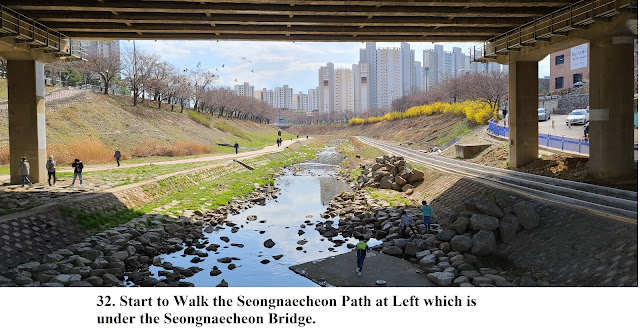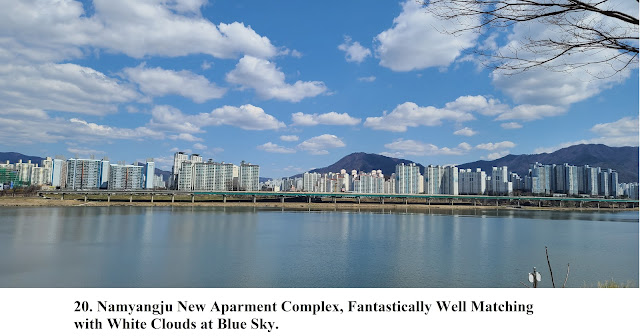1. Preface
Consistent effort how to efficiently and safely forward the cargo between Hangang River and West Sea had been made from the generation to the generation. First trial was made in the King Gojeong in Joseon Dynasty about 800 years ago which they were transporting most nationwide taxed goods from various places to the Gyeongchang Warehouse in Mapo, Seoul via Sondeulmok in Ganghwa Island and Yeomha. But these two areas were always raging tied area and troubled area, the one is hardest sailing route and the other normally too shallow river to sail under normal tied condtions so that only possible to sail the vessel under high tied. The Korea Government decided to directly connect between Wontungui Hyun Village in Incheon City and Gulpocheon Creek in Gimpo City in order to avoid these two troubled areas. But they failed to complete the canal since they could not make a canal at hardest rock area for about 400m. Thereafter they were randomly trying to construct the canal but continuously failed due to insufficient technology or infeasible project or strong resist from the environmental movement group. The Government eventually took a determination to perform this canal project under political nation project which could directly start to move under the Government project in 2009 and complete the project in 2011.
2.
The Guide Information for Course 1
The
Gyeongin Ara Waterway Walking Course 1 is starting from the Gaehwa Station in Seoul
Metro Line 9 to the Gyeyang Station in the Airport Railroad Line as about 14 km
distance walking alongside Ara Waterway cannel for about 4 hours including 1
hour break during the Course. You could start to walk the GAWW Course 1 as soon
as walking out the Gate 1 at the Gaehwa Station in the Seoul Metro Line 9 and continuously
walk to the Bike Riding Confirmation Point at the Ara Hangang Lock Gate where
hardest area at the complete Course 1. If you carefully follow course guide
explanation at the Photo 01 through 20, I believe you could make it possible to
touch down the Confirmation Point. Thereafter walk along with Ara Waterway up
to the Gulhyun Daegyeo Bridge via the Gyeongin Container Terminal as see at the
Photo 21 through 42. You could now go to the Gyeyang Station from the GAWW
Course 1 as see at the Photo 43 through 46. You could also refer to the GAWW
Course 1 Map attached and linked to https://www.youtube.com/watch?v=dZpvn-3tXSE
3.
Historic and Background Information
There
are several places or spot where some cultural and historic background and
which you may feel interest or useful for your better understanding. Please
refer followings to brief explanation.
3-1) Gaehwa Dong Town
The
name of the Gaehwa Dong Town was originated from the name of low level Gaehwa
Mountain, 13.2 m above sea level which was mostly covering and positioning the
Gaehwa Dong. This Dong was hanging at the end of Gimpo Plain and Haengju
Passenger Dock and belongs to the Yangcheongun District in the Korean Empire in
old days which was combined with other neighboring towns as Sangsa Dong,
Gaehwari and Uebuseokri. All these towns were naturally created and build up
under normal human life.
3-2) Gulpocheon Creek
The
Gulpocheon Creek means excavated creek which was made by the dredging works
since elevation level between Boelmal area to Hangang River was higher and not
so easy for the transportation. Therefore people took a decision to dredge this
creek. As dredging works was carried out, they were additionally renovating the
existing curved water flow rout to somewhat straight flow.
3-3) Gyeyang Daegyeo Bridge
There
are 16 bridges at the Gyeongin Ara Waterway (GAW) Cannel connecting between
South and North at the GAW Cannel. There are three best three bridges at the
GAW cannel as Sicheongyeo Bridge as well-known as beautiful lighting at night
and Moksanggyeo Bridge as beautiful arch style bridge and Gyeyang Daegyeo
Bridge as longest and highest bridge. Gyeyang Daegyeo Bridge was called as
Gulhyun Daegyeo at beginning and later changed its name to Gyeyang Daegyeo
Bridge so as to promote Gyeyang Gu District

























































































